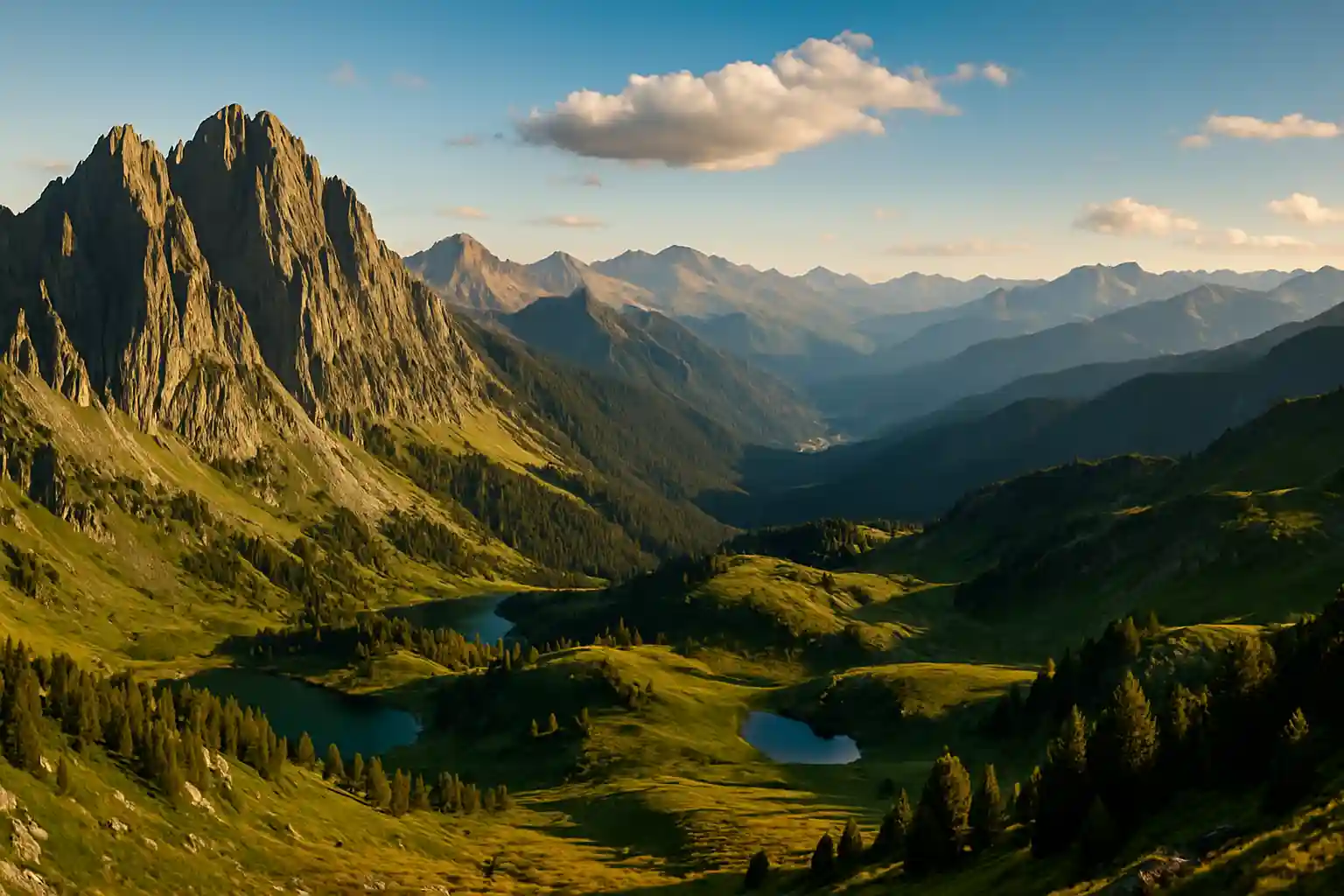Barcelona to the Pyrenees – Day Tour: Valleys, Villages & Viewpoints

Most itineraries follow the C-16 north through the pre-Pyrenees, then climb toward high valleys like Núria or Cerdanya. Expect ~2.5–3 hours each way with a coffee stop. The key is variety: one elevated viewpoint, one medieval village, and one gentle trail or lake stroll to stretch the legs.
Vall de Núria by Rack Railway
Park or transfer at Queralbs to ride the Cremallera up to Vall de Núria, a basin ringed by peaks. Trails radiate from the sanctuary complex; even a short loop delivers streams, meadows, and clean mountain air. In summer, picnic lawns and rowboats; in winter, snow scenes and hot chocolate.
Stone Villages & Romanesque Touches
Villages like Bagà, Queralbs, or Llivia showcase slate roofs, arcaded squares, and small Romanesque churches. Give yourself an unrushed hour: cross an old bridge, follow the sound of water, and linger in a café for coca (pastry) or mountain cheese.
Viewpoints & Short Walks
For wide frames, aim for passes and lookouts: the road toward Collada de Toses opens to layered ridges; signed trails near valleys like La Molina or Puigcerdà offer 30–60 minute loops. Bring a windproof layer—shade drops the temperature quickly at altitude.
- 07:00 depart Barcelona → coffee near Berga.
- 10:00 Queralbs → rack railway to Vall de Núria.
- 10:45–12:30 lakeside walk & meadow loop.
- 13:30 village lunch (trinxat, grilled meats, seasonal soups).
- 15:00 scenic viewpoint stop (Collada de Toses or valley overlook).
- 16:00 slow village stroll & café → 18:00 return drive.
Seasonality & What Changes
Winter: Snow on upper slopes; roads usually clear but check conditions. Valley walks turn into snow scenes—bring traction if icy.
Spring: Meltwater streams and flowers; mornings crisp, afternoons soft—layers are key.
Summer: Cool at altitude when Barcelona bakes; sun strong—hat and sunscreen essential.
Autumn: Beeches and larches glow; earlier sunsets—start early to linger at viewpoints.
What to Eat
Mountain kitchens favor heartiness: trinxat (cabbage–potato–pork), grilled sausages, river trout, sheep cheeses, and honey. In summer, lighter salads and charcuterie boards work after walks.
Borders, Gear & Practicalities
If your route dips into Cerdanya’s French side, carry a valid ID/passport. Wear cushioned shoes with grip; pack water, sunscreen, and a wind layer. Phone signal can fade on certain trails—download offline maps. If you prefer logistics handled, the linked small-group tour keeps timing smooth.
- Late morning light softens valley floors; golden hour adds drama to ridgelines.
- Keep a 20–30 minute buffer for railway/timetable changes and scenic stops.
- Alternate drives with short walks to avoid “windshield fatigue.”
